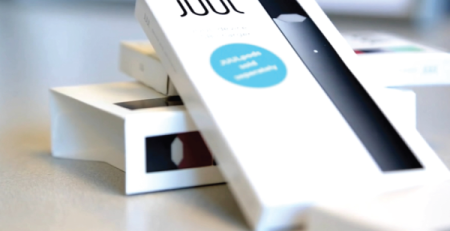Viewpoint: FDA and e-Cigarette Regulation: A Game of Cat and Mouse
Chu K, Hershey TB, Sidani JE. Collaborative Public Health Strategies to Combat e-Cigarette Regulation Loopholes. JAMA Pediatr. 2021;175(11):1102-1104. Following the regulation of JUUL in the US, disposable e-cigarettes became the replacement. The most popular disposable brand (of e-cigarette), Puff Bar, looked nearly identical to JUUL and sold similar flavors.
In July 2020, the FDA issued warning letters to 10 of these companies, including Puff Bar, instructing them to remove their products from the market, citing their introduction after August 8, 2016, effective date of the deeming rule bringing all tobacco products under FDA authority. For several months, Puff Bar’s website ceased product sales, although anecdotal evidence suggested sales continued in alternative online retailers as well as offline outlets. In January 2021, however, Puff Bar resumed website sales—including flavored products—stating that their “nicotine-based products are crafted from a patented manufacturing process, not from tobacco,” while also stating their “products are not intended to diagnose, treat, cure, or prevent disease,” thus potentially circumventing regulation from the FDA as either a tobacco product (regulated by the Center for Tobacco Products) or a drug (regulated by the Center for Drug Evaluation and Research) (Emphasis added). As mentioned in a recent advocacy letter to the FDA acting commissioner, this game of cat and mouse illustrates the need to use additional strategies to reduce youth e-cigarette use, especially in consideration of potential regulatory loopholes.
Comment: Selling nicotine to young non-smokers (whether from tobacco or synthetic nicotine), regardless of its use in relation to disease as a drug, is promoting addiction and should be regulated. Using loopholes and rapid product changes does not change this fact, but the vaping industry doesn’t care. It just looks at the projected billions of dollars it can make selling vaping and keeps playing games with regulatory language (‘reduced exposure’ and ‘modified risk’ product) to keep selling. While authors of this study suggest improving regulatory approaches, banning harmful e-cigarettes is the best option when one does not wish to play games with purveyors of nicotine. Stephen Hamann : https://jamanetwork.com/journals/jamapediatrics/fullarticle/2783021
—
Stephen Hamann












